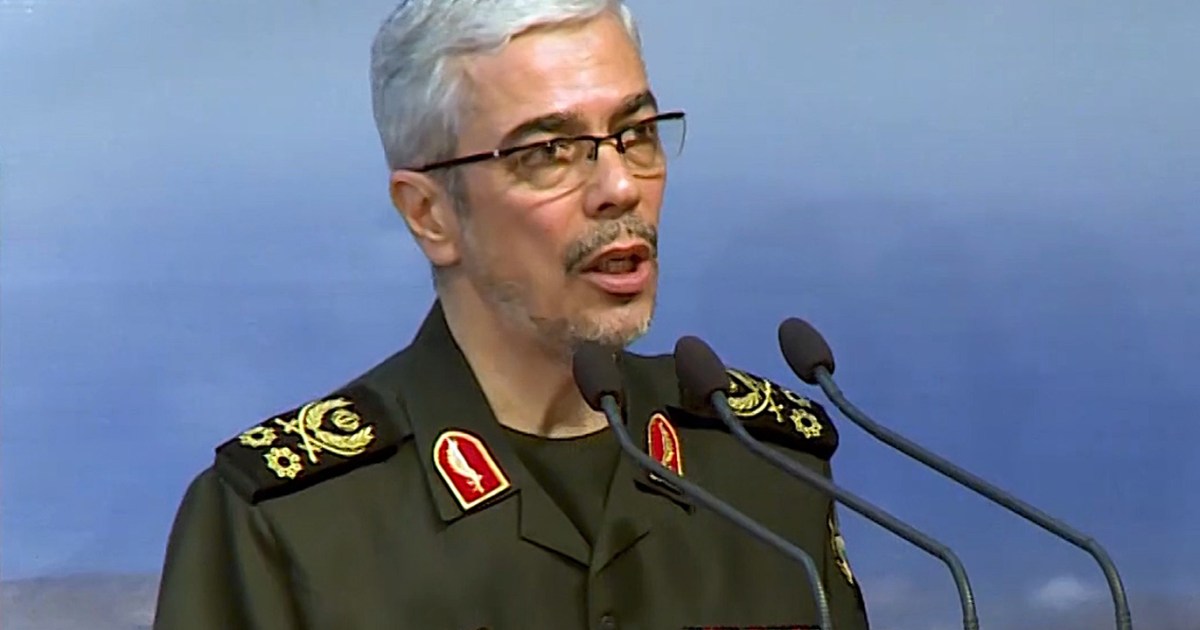The Iranian Chief of Staff, Major General Muhammad Baqeri, said that what happened recently in southern Israel, and what will happen in the future, is due to its security and interests.
It will bring her back to her senses.
Today, an Israeli security delegation is expected to start a visit to Washington to discuss the Iran file.
He added that Israel must be sure that the continued targeting of Syria and ships at sea will be followed by clear responses.
He pointed out that if Israel continues its policies - which he described as aggressive - it is not known the form and size of the Iranian response, and it may be shocking.
Israel admitted that an explosion took place near the Dimona nuclear reactor a few days ago, but the Israeli army said that what happened was that a missile, which it described as a reckless surface-to-air model, was launched from Syria and landed in an area far from the Dimona nuclear reactor in the Negev desert, without causing damage.
However, unofficial Iranian media questioned the Israeli version of the incident and Tel Aviv’s description of the missile as reckless, describing it as a funny thing to experts, and said that what happened near the Dimona reactor was a “message to Israel that its sensitive areas are not immune.” The same sources added that the missile could have been He continues on his way to the reactor, "but causing a disaster is not required."
The same sources stated that the available information indicates that the missile is of the "Fateh 110" type, and is capable of carrying explosive warheads, and the information also indicates that the missile is a surface-to-ground type and not a surface-to-air, as mentioned by the Israeli version.
Earlier, an official in the Iranian Revolutionary Guard said that what happened in southern Israel "cannot be concealed, and whoever commits evil must bear the result of his actions." The official added that Tel Aviv "seeks to obscure what happened yesterday in terms of explosions in a military company."
Falahzadeh, deputy commander of the Quds Force of the Revolutionary Guards, said, "The Zionist entity must realize that the resistance is stable near its bases around the world and pushes it to collapse." He added that Israel "will not exist after 25 years, and the Islamic nation will not stop confronting it."
It is noteworthy that, in the past few years, Israel has intensified its targeting of military sites that it says belong to Iranian forces and groups loyal to it in several areas of Syria, as the Israeli Chief of Staff said last December that Israel had launched more than 500 missile strikes on Syria in Last year alone, with the aim of fighting Iran's military base in Syrian territory.
An Israeli security delegation visits Washington
On the other hand, an Israeli security delegation is scheduled to start a visit to the United States on Sunday.
In an attempt to dissuade it from returning to the nuclear agreement with Iran.
AXIOS website quoted an Israeli official as saying that the delegation will include Israeli National Security Adviser Meir Ben Shabat, IDF Chief of Staff Aviv Kohavi, in addition to Mossad chief Yossi Cohen.
The Israeli official said that Netanyahu held a meeting with the delegation, and asked to deliver a message that the return to the nuclear agreement is a threat to Israel, and that it does not welcome the Vienna talks in which Iran and international parties are discussing ways to return the United States to the agreement that these international parties reached with Iran in 2015.
Earlier, US State Department spokesman Ned Price said that the discussions with Iran in Vienna focus on ensuring that Iran does not obtain a nuclear bomb, and is looking into sanctions that can be lifted.
And he added - in an exclusive interview with Al Jazeera - that the Biden administration's proposals on Iran are based on the principle of compliance versus compliance, in order to return to the nuclear agreement.
He stressed that Washington is coordinating with Israel regarding the Iranian file, noting that Iran poses a major challenge with its support for terrorism and proxies in the region, as well as with its human rights violations and its ballistic missile program.
The United States withdrew from the agreement in 2018 during the era of former President Donald Trump, and has re-imposed sanctions on Iran, which responded - as of 2019 - by waiving the agreement's restrictions on its nuclear activities.

